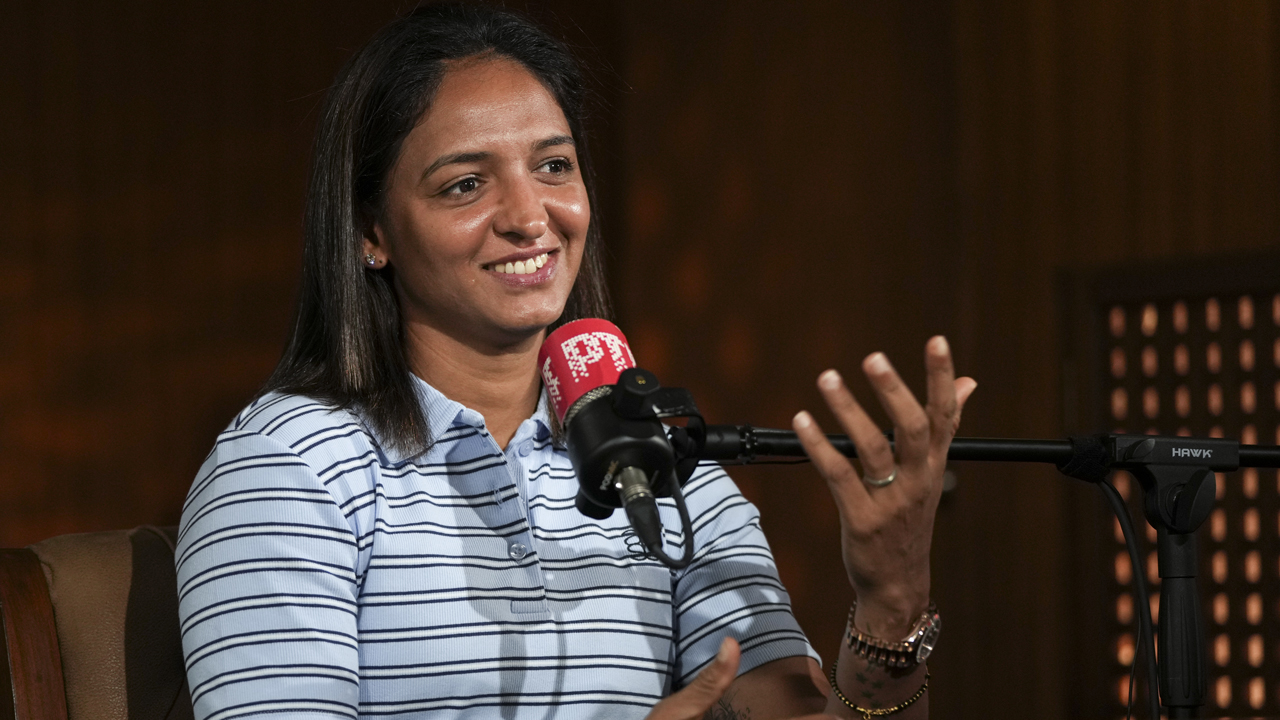NEW DELHI: The wide pay gap between men's and women's central contracts has never been a major concern for India captain Harmanpreet Kaur, who believes it is "driven by market forces." However, following her team's historic ODI World Cup triumph, she feels the Board of Control for Cricket in India (BCCI) may now bring the two closer in value.
While the BCCI had already equalised match fees for men and women in 2022, central contracts remain vastly different. The top-tier male cricketers earn Rs 7 crore annually, whereas their female counterparts receive Rs 50 lakh.
VIDEO | PTI subscribers, stay tuned for the first and exclusive tell-all interview of Harmanpreet Kaur with PTI CEO & Editor-in-Chief Vijay Joshi, in which she speaks her mind, her inhibitions, fears, ecstasy, what it means to be the skipper of India’s first women’s World… pic.twitter.com/CtdEktm3Ja
— Press Trust of India (@PTI_News) November 14, 2025
Harmanpreet echoed the long-held view of teammate Smriti Mandhana, who has previously said that the disparity is largely influenced by market realities. With the women's team now achieving global success, Harmanpreet hopes this will accelerate the path toward more equitable contracts.
"It will change now (the value of the central contracts). That's what I feel. A lot of changes came after 2017 (when India reached the final). Before that, our central contract was worth Rs 15 lakh," said the India captain during her visit to the PTI headquarters where she opened up about her journey and the growth of Indian women's cricket in an exclusive interview.
Harmanpreet acknowledged that most of the revenue comes from men's cricket, but said that following the women's ODI World Cup triumph earlier this month, changes are already underway.
"After the 2017 World Cup, it became Rs 50 lakh. After that, we couldn't prove ourselves much, especially in ICC events. Because at the end of the day, the main goal is ICC events.
VIDEO | EXCLUSIVE: In a tell-all interview with PTI CEO & Editor-in-Chief Vijay Joshi, Indian captain Harmanpreet Kaur says, "I always had the dream of playing for India, even before I knew anything about women's cricket. When I started watching matches on TV, from that very time… pic.twitter.com/oBB8scbcbu
— Press Trust of India (@PTI_News) November 15, 2025
"After winning this trophy, I am sure there will be a lot of improvements. And we will see financially also," added the first Indian women's team captain to be a World Cup-winner," she said.
"Before this, all the revenue was coming through men's cricket. We were grateful that BCCI made us a part of it and supported women's cricket when it needed the most."
Harmanpreet said she has always been aware that only strong performances would compel market forces to pay women cricketers better.
"One thing that we always knew was that we will have to contribute and then only we can come to that point. Now we can talk about equal payment and equal recognition," she said.
"For that, we have to come to that point because we knew that they (the men) have improved their cricket so much over the years. They have won back-to-back trophies for the country. If their market value is higher than ours, then there must be some reason behind it," she said.
Harmanpreet said the market value of women cricketers has already gone up post the final in Navi Mumbai on November 2 in which they comprehensively defeated South Africa.
"Post November 2, the market value of women's cricket has gone up because of the trophy. If we had not won that trophy, we would still be stuck there.
"If we want to change, we have to come to that point that we win the same number of trophies for the country. Then people will automatically start giving us the same value as men get," said the India skipper.
It's not over yet: Harmanpreet on future
Harmanpreet is expected to captain the side in the 2026 T20 World Cup in the UK but will the 36-year-old be around when the next ODI World Cup takes time in four years' time?
"See, winning the World Cup with the best team and supporters and in your home ground surely is a dream but yes it's not over yet. There's another trophy that awaits and we want to celebrate and move on to the next phase and work towards the next goal," she said.
India developing big pool of players
When asked about the way forward for the team and whether it needed a bigger pool of fast bowlers to consistently dominate the game, Harmanpreet struck a confident tone.
"We do have a team of fast bowlers and as we've seen how Kranti Goud and Shree Charani (spinner) did for our side. These youngsters gave us some great moments to celebrate. As a captain I never felt for once that I had to do hard work on them .
"They believed in themselves and delivered whenever they had to. Apart from that India is developing a huge pool of players and bowlers who in time will showcase their talent," the captain added.
The Jay Shah factor
Harmanpreet lauded ICC Chairman Jay Shah's contribution in the growth of Indian women's cricket during his tenure as BCCI secretary. Shah was credited with introducing pay parity in match fee and the introduction of the Women's Premier League.
"...Jay Shah has been the biggest contributor. He has been the biggest strength for our team, he supported us even when we hadn't won any ICC trophy," she said.
"We really wanted to do it for him. He gave us everything we needed, be it pay parity or any support. He couldn't express much on the ground when we won; he just said, 'I am very happy', and that was all we needed," she said.
(With PTI Inputs)

